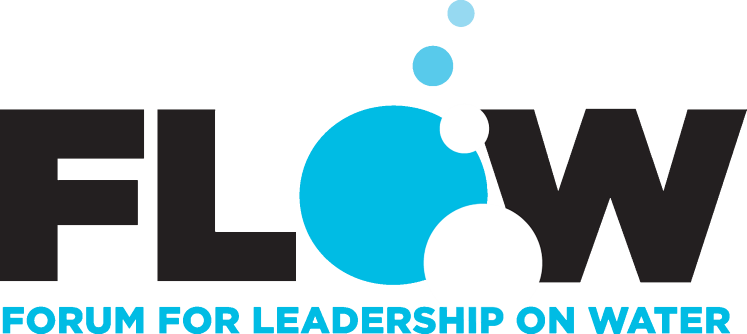B.C. Needs Local Watershed Boards to Avoid Water Wars
Tim Morris, Oliver Brandes
Originally Published in the Vancouver Sun, April 2024
Water levels in the Fraser River hit the lowest levels in over 100 years in April 2023, impacting waterways including the Lower Agassiz Slough in the Lower Fraser Watershed. Lower Agassiz Slough received a new fish-friendly floodgate in 2021 with funding provided by the Healthy Watersheds Initiative.
Imagine: Water for new housing pitted against water to grow food. Water for salmon versus water for livestock.
But conflict over water access is not inevitable in B.C.
“Whiskey is for drinking, water is for fighting over.” So goes the old Mark Twain adage. As we head into late spring with record low snowpack and a drought that never really ended, we need strong leadership from Premier David Eby and his government to ensure this doesn’t come true here in B.C.
Recent provincial funding announcements for agricultural water infrastructure and water metering projects are welcome measures, but our concern is that they are piecemeal and reactive. What we actually need, and what many water experts have been calling for, is an overhaul and long-term investment in B.C.’s watershed governance regime.
In B.C., many pressures are already pulling on the social fabric that holds our communities together. Rising costs, a housing shortage, the lingering effects of the COVID pandemic, political polarization and the rise of global populism are all undermining people’s sense of stability and trust in public institutions.
With the effects of the climate crisis upon us, we face the serious risk of adding fierce competition for scarce water resources to this list. Imagine: water for new housing pitted against water to grow food. Water for salmon versus water for livestock. Water for local residents versus water for tourists. And water for industry versus water for natural ecosystems.
Last summer, a prolonged drought saw tensions escalate in regions across B.C. as farmers lost crops, salmon perished in dry creeks and wells ran dry. Warning signs already exist in other parts of the world. In Spain, for example, anger and frustration over a multi-year water crisis recently spilled over into mass demonstrations on the streets.
But fear, conflict, and protests over water access are not inevitable here in B.C. We still have enough water. What we lack is the urgency and priority to take care of it.
So, how can we follow a different path that avoids serious conflict and builds watershed security?
To start, the provincial government needs to catch up on the basics of water management. This includes fixing B.C.’s groundwater licensing system, protecting drinking water sources, requiring industries to account for their water use, and regular reporting on the health of our watersheds.
Moreover, to ensure watershed security, our government must enable decision-making at the local level. It can do this by investing in a system of watershed boards.
Watershed boards foster cooperation and mutual understanding by bringing local people together around shared goals for the watersheds they call home. These boards facilitate difficult but respectful conversations between neighbours — such as between chiefs and mayors, farmers and salmon advocates, and business leaders and stewardship groups. Crucially, these boards build on the strengths of Indigenous knowledge and Western science to deepen understanding of watershed health, advance reconciliation, and implement locally designed solutions.
Compared to provinces like Ontario, Alberta, Quebec, and Manitoba, B.C. currently lags behind when it comes to watershed governance. These provinces already have frameworks for local watershed agencies, which play a central role in watershed planning, setting priorities, including drought and flood response, protecting drinking water sources, and strengthening community water stewardship.
B.C. can learn from and improve on other models to build a system of watershed governance that is designed for the challenges we now face. Fortunately, we already have strong B.C.-based examples to learn and build from. Created in 1970, the Okanagan Basin Water Board is the first and only legislated watershed board in the province. It is an enduring example of local cooperative watershed management. It distributes grants, implements science and monitoring, undertakes public education, promotes local government collaboration, and coordinates water stewardship initiatives.
More recently, Cowichan Tribes and the Cowichan Valley Regional District created the Cowichan Watershed Board. Recognized as a model of co-governance, the board reflects both First Nation and local government authority. It undertakes watershed monitoring, education and restoration activities. It has successfully advocated for provincial and federal partnerships, including B.C.’s first Water Sustainability Plan and funding to upgrade the Cowichan weir.
Provincial leadership is needed to create and support effective local watershed boards that build on these successful models. By embracing collaborative watershed governance, we have a unique opportunity to show the world a positive path forward — a path that bridges divides, advances reconciliation, empowers local decisions, and harnesses the ingenuity of the people who know their watersheds best.
Tim Morris is project director at B.C. Water Legacy; Oliver M. Brandes is the associate director of the Centre for Global Studies, co-director of the POLIS project on ecological governance at the University of Victoria, and a longtime formal advisor to the Cowichan Watershed Board.

